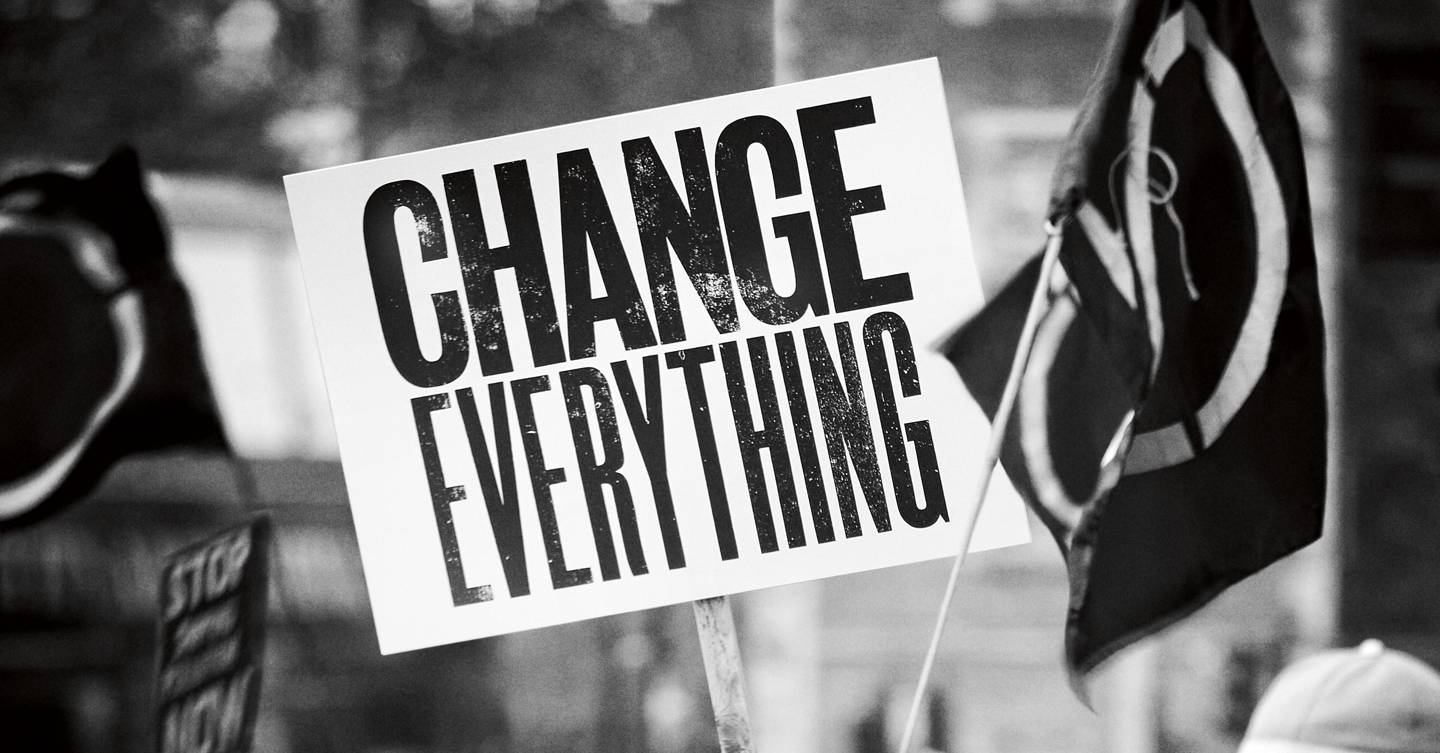
Change everything: 32 innovators who are building a better future
As we say goodbye to 2020, we look to the people taking real steps to make the world a better place, in 2021 and beyond. We asked leaders across the WIRED world, from Alphabet CEO Sundar Pichai to Oxford Covid-19 vaccine researcher Sarah Gilbert, to name a person whose work they think deserves greater recognition.
Spanning scientists, technologists, founders and activists, these are the people working to build a brighter future.
Sarah Gilbert, professor of vaccinology, The Jenner Institute/University of Oxford selects Teresa Lambe, associate professor and Jenner investigator, The Jenner Institute
I’m nominating Associate Professor Teresa Lambe, who has been leading on immunology assessments in the Oxford-led trials of [Covid-19 vaccine candidate] ChAdOx1 nCoV-19. Prof Lambe has assembled a team to work with our UK trial sites and international collaborators to ensure that we get high-quality immunology data from our clinical trials in the shortest possible time.
Marietje Schaake, international policy director at Stanford University’s Cyber Policy Center selects Laura DeNardis, professor af the School of Communication, American University
Laura DeNardis is a razor-sharp visionary of technology and the power battles that come with digitisation and connectivity. While excitement over efficiency drew millions to the internet, she pointed to the coming war of internet governance. Now that this war is unfolding, she highlights the revolutionary change that “the internet in everything” – from devices to human bodies – brings for human rights and security. The integration of the physical and digital causes a blurring of boundaries that deeply impacts human agency. Her warnings about the need to scale up security must be heard today, in order to prevent disaster tomorrow.
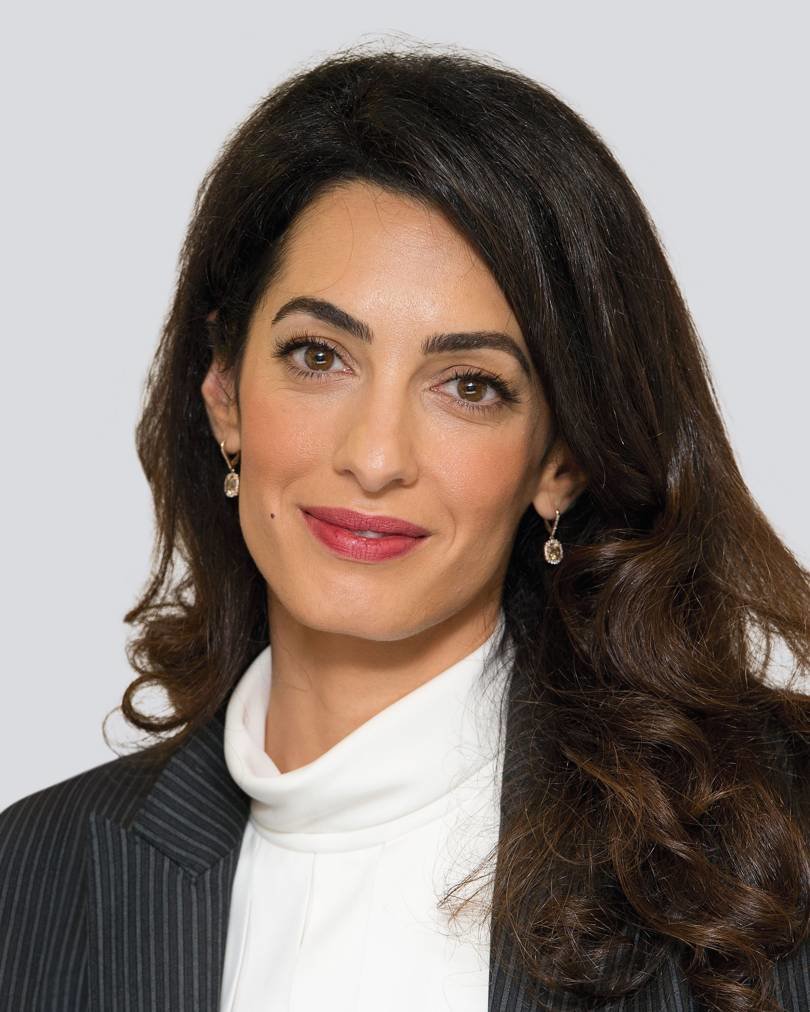
Amal Clooney, human rights lawyer
Amal Clooney, international human rights lawyer selects aria Ressa, co-founder and CEO of Rappler
Maria Ressa is the founder of Rappler, one of the last independent news sites in the Philippines that dares to report the truth. The site uses technology to uncover how social media is being used by the Duterte regime and other authoritarian governments to bury facts and spread disinformation. At a time when the traditional funding models for journalism are collapsing, Rappler has also used technology to create new revenue streams that make news reporting sustainable. Maria is facing a succession of prosecutions on bogus charges that threaten to bankrupt her and send her to prison for the rest of her life. If that happens, it would be a loss for her country, for her profession, and for us all.
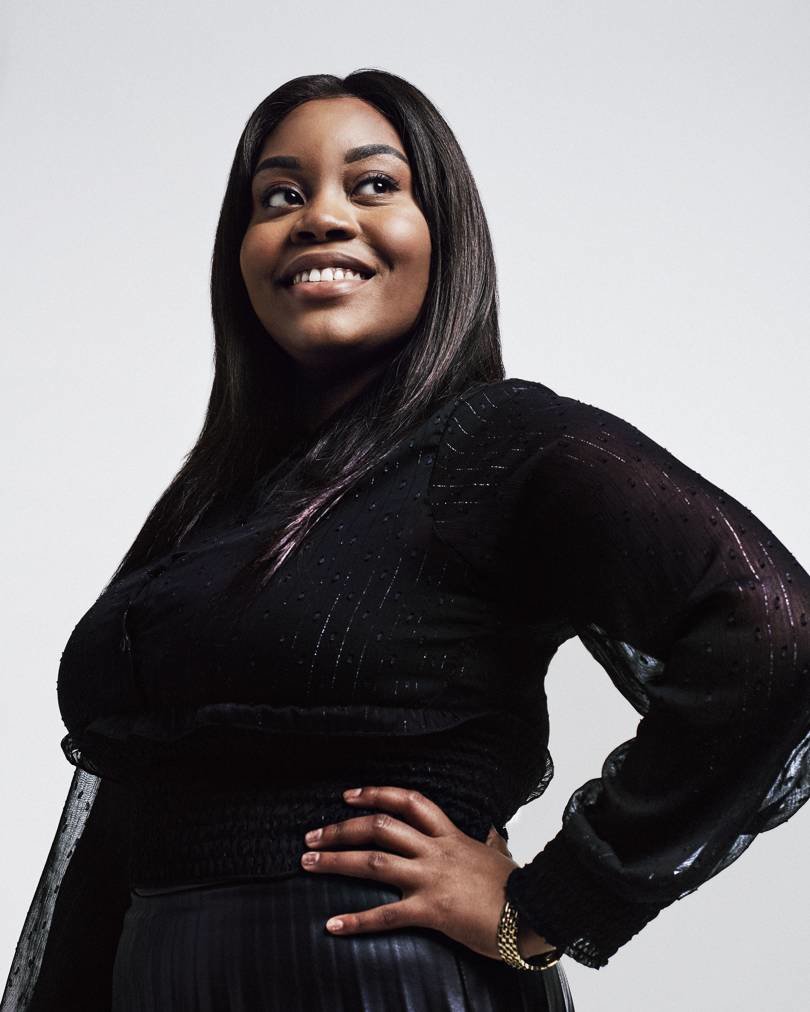
Chrisann Jarrett, co-founder & co-CEO of We Belong
Martha Lane Fox, entrepreneur and internet activist selects Chrisann Jarrett and Dami Makinde, co-founders of We Belong
My nominations are the co-founders of We Belong, Chrisann Jarrett and Dami Makinde. Chrisann and Dami have used their own experiences of being young migrants blocked from an education in the UK to start an organisation to help others. Dami is a remarkable leader who fights for some of the least-heard people in the country. Chrisann is also an extraordinary leader who has recently become a trustee of the Queen's Commonwealth Trust, where her voice is always championing excluded young people.
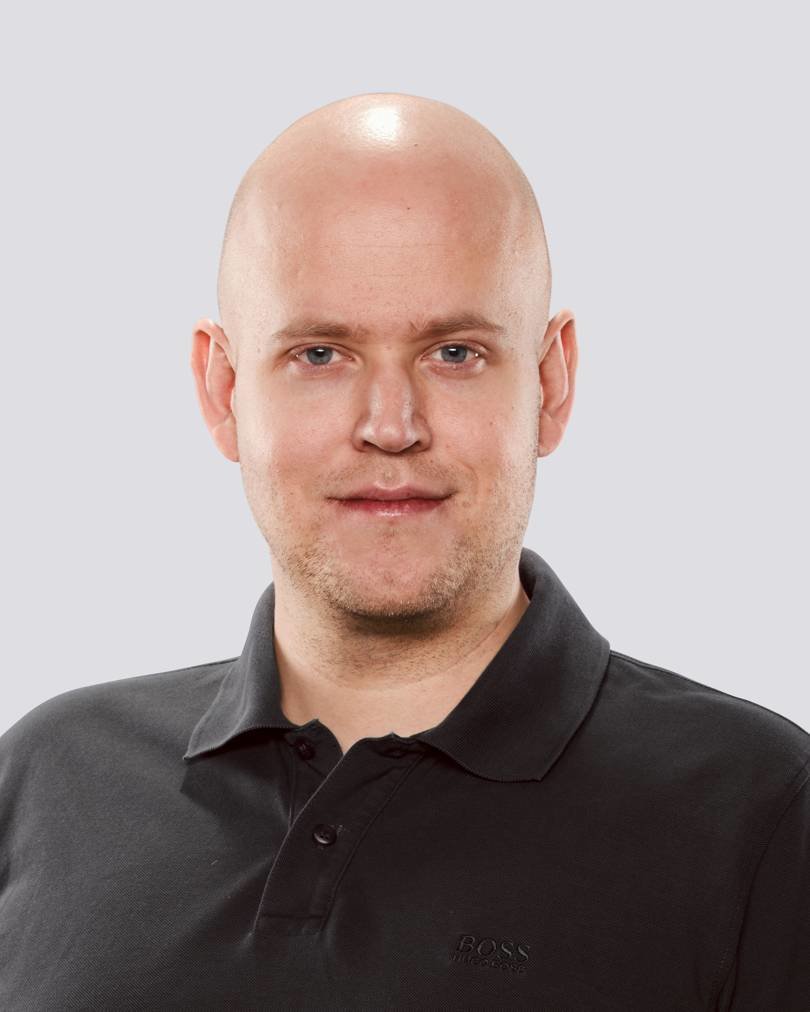
Daniel Ek, co-founder & CEO, Spotify
Daniel Ek, co-founder and CEO, Spotify selects Matt Clifford and Alice Bentinck, co-founders of Entrepreneur First
Founded in 2011 and led by Matt Clifford and Alice Bentinck, Entrepreneur First works to enable the world’s most ambitious people to live out their dreams, through global talent investing. The organisation focuses on supporting individuals, rather than established companies, allowing for direct innovation in the technology space. With more than 2,000 entrepreneurs supported by the programme, Matt and Alice have created an incredible pipeline of talent that is sure to change the tech landscape and the world as we know it.
Carly Kind, director of the Ada Lovelace Institute selects Seyi Akiwowo, founder and executive director, Glitch!
I'd like to nominate Seyi Akiwowo, the amazing activist, speaker and trainer who founded Glitch!, an organisation dedicated to ending online abuse against women. Glitch! trains young people on how to be good digital citizens and provides support to women in public life about digital self care. Seyi is an amazing and inspirational woman who is holding big tech companies to account and influencing their practices.
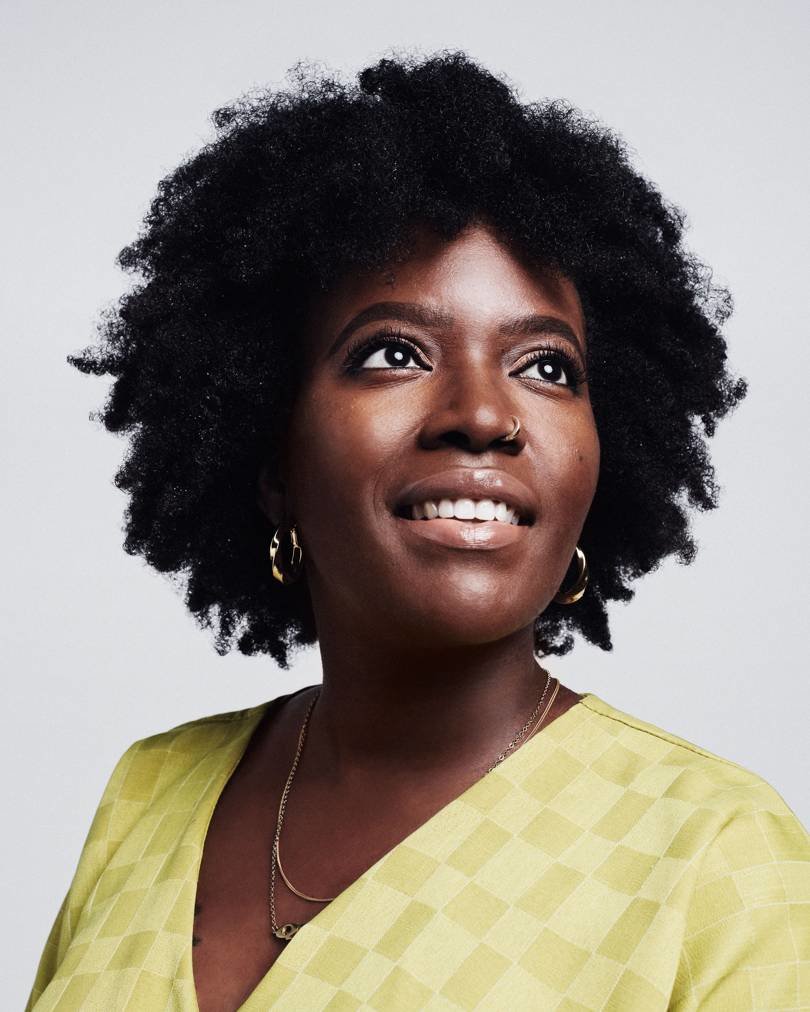
Seyi Akiwowo, founder & executive director of Glitch!
Jan Wörner, director general of the European Space Agency selects Stephan Hauser, inventor of DUCON technology
I propose Dr. Stephan Hauser, an engineer who developed DUCON, a very ductile material for construction which already helped to save lives when a car bomb exploded in front of the German Embassy in Afghanistan. The material, a special type of concrete, was developed based on pure scientific activities which led to a very powerful substance for new structures and to strengthen or upgrade existing buildings.
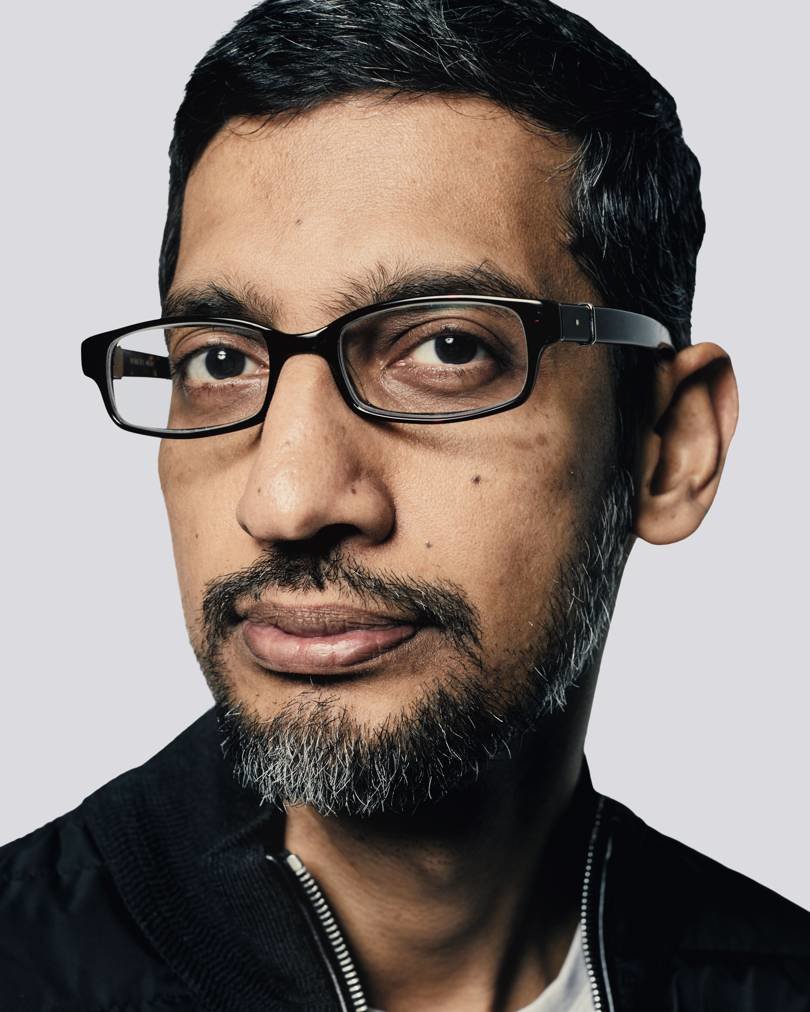
Sundar Pichai, CEO of Alphabet
Sundar Pichai, CEO of Alphabet selects Ibrahim Ouassari, co-founder of Molengeek
Ibrahim Ouassari co-founded Molengeek with a mission to make technology and entrepreneurship accessible to everyone, regardless of their background. Dropping out of school aged 14, Ibrahim is a self-taught entrepreneur who is helping others to use technology to transform their communities in Brussels, Padua and Amsterdam – including 35 startups that have been built and grown through the incubator. I was glad to have the chance to see this work first-hand when I visited Molengeek’s space in Molenbeek, a neighborhood in Brussels, earlier this year. This mission is deeply personal to me. Growing up in India, every new invention, from the refrigerator to the television, changed my family’s life in meaningful ways. It’s what made me a technology optimist – not because I believe in technology but because I believe in what people will do with it. Visiting Ibrahim and the generation of innovators he has inspired earlier this year has kept me optimistic about the direction technology is headed.
Alice Bentinck, co-founder of Entrepreneur First selects Anne Marie Droste, co-founder and CEO of Grip FertilityAnne
Marie Droste co-founded Grip Fertility, a platform that's transforming how women track and understand their hormones. You take a blood test at home, which gets analysed by their labs, and you then discuss your results via a video call with Grip’s fertility doctors. They are making fertility something you can be proactive about. They’ve seen rapid growth in the Netherlands, and I believe this is the start of an exciting change where women can take control of their hormonal health. She's exceptionally talented, working in an area that's ripe for disruption, and this makes her startup one to watch.
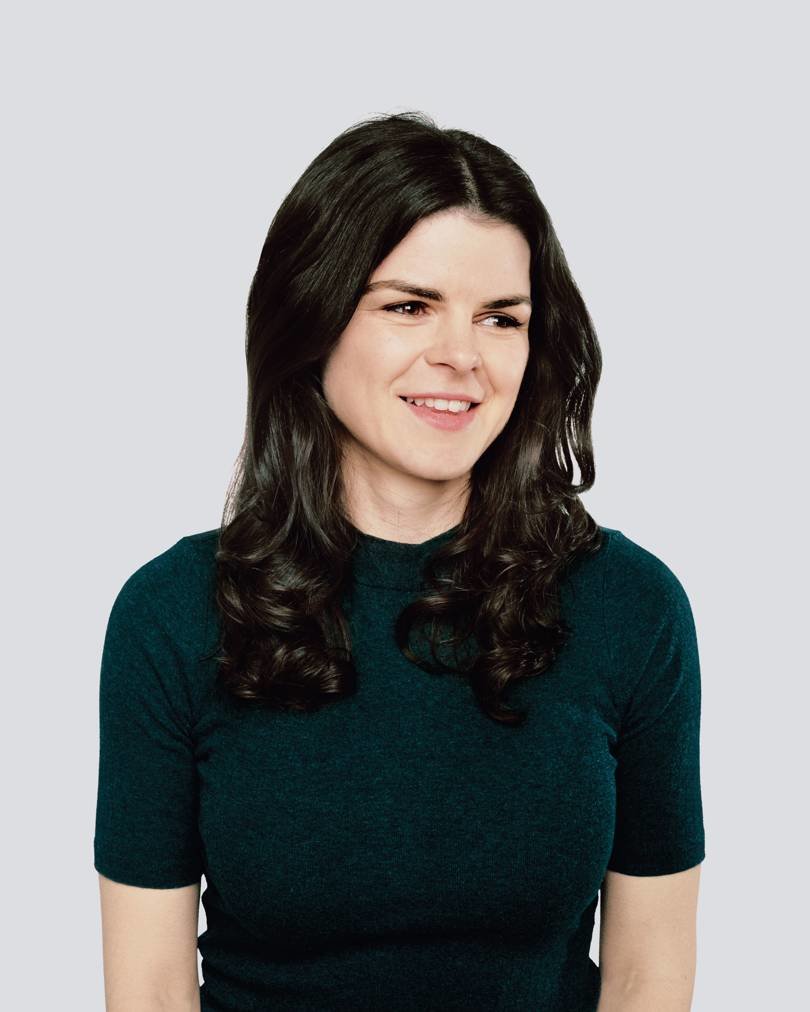
Alice Bentinck, co-founder of Entrepreneur First
Hermann Hauser, co-founder of ARM and managing partner at Amadeus Capital selects Wolfgang Lechner, co-founder of ParityQC
I’d like to nominate Dr.Wolfgang Lechner, assistant professor at the University of Innsbruck, for his breakthrough architecture for quantum computers.
Audrey Tang, digital minister of Taiwan selects Huang Wei-xiang, CEO of Skills for U
I’d like to recommend Huang Wei-xiang of Skills for U, a for-purpose organisation that promotes vocational education and skills development, selected as one of the world's top 12 new skills innovators by WorldSkills International in 2018. Since November 2016, Huang has been a member of Taiwan’s cabinet-level Youth Advisory Committee, and in 2019 he put forward a proposal to allow Taiwan's WorldSkills Competitions (WSC) champions to participate in the National Day Parade for the first time, successfully showing the community the potential of Taiwan's technical and vocational education and skills development. At the community level, Huang linked up with a fundraising platform, several opinion leaders and Asia's largest education exhibition, ZaShare.org, to broadcast an animation of vocational education and skills in [Taiwanese skyscraper] Taipei 101.
Kay Firth-Butterfield, head of AI and machine learning at the World Economic Forum selects Darren Jones MP
While governments have long struggled to keep up with the blistering pace of technology, the speed and scale of AI’s development have proven especially difficult for policy makers to handle. One notable exception is Darren Jones MP, a young parliamentarian from Bristol who has taken extraordinary efforts to close the gap between AI technology and government policy. As chair of the Institute of AI, Darren has created a vital resource for legislators around the world to learn about AI, exchange best practices on regulation and work together to shape global standards. Many players in the AI policy space are making more noise than Darren, but few are making as much impact.
Christiana Figueres, co-founder of Global Optimism and Costa Rican diplomat selects Jane Burston, founder and executive director of the Clean Air Fund
Air pollution is a major public health issue, responsible for a whopping 15 per cent of deaths every year, but there is little funding, public or private, being directed at air pollution solutions. As a comparison, while $800 is donated for every HIV-related death, only $8 is donated for every air pollution-related death. Jane Burston is working to address this. She set up the Clean Air Fund, a global philanthropic initiative that supports organisations around the world working to combat outdoor air pollution. In less than a year she raised $50m – halfway towards her $100m target. She is now finding, funding and scaling projects that provide clean air for all.
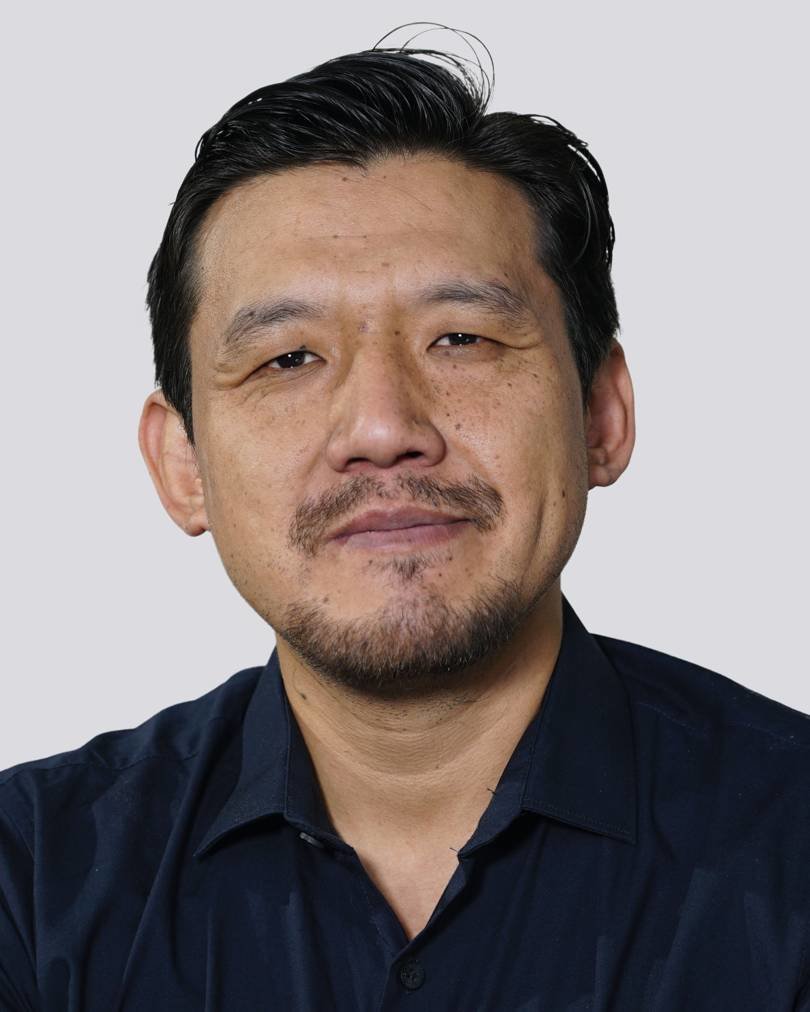
Lobsang Sither, digital security program director at the Tibet Action Institute
Ron Deibert, director of the Citizen Lab at the Munk School of Global Affairs, University of Toronto selects Lobsang Sither, digital security program director at the Tibet Action Institute
Lobsang Sither has worked quietly, compassionately and tirelessly to improve digital security among Tibetans for well over a decade. As one of the key people behind the Tibet Action Institute, he has had to fend off a constant barrage of targeted espionage attacks from mainland China, not only against his own organisation, but against the entire Tibetan diaspora and especially the community where he lives in Dharamsala, India. Along with his colleagues, Lobsang has pioneered one of the first civil society computer emergency response teams called TibCERT to share threat intelligence information among NGOs, researchers and activists in the Tibetan community. He’s also been behind some of the most imaginative ways of communicating digital hygiene practices to Tibetans and others, including the brilliant “Be Your Own Cyber Super Hero” campaign. Tibetans have for decades struggled to preserve their human rights and independence against huge odds. Lobsang Sither is an understated superhero in this effort.
Joshua Wong, Hong Kong pro-democracy activist selects Parit Chiwarak, Thai student activistLiving in a country where dissidents are subject to kidnappings, forced exile and mysterious murders, Parit and other freedom-loving Thai students demonstrate their unwavering spirit of resistance to challenge Thailand’s biggest taboo – the once-untouchable monarchy. Among other alleged participants in the Free Youth Movement, Parit faces political persecutions after holding peaceful rallies calling for democratic reforms. However, through their relentless pursuit for justice, their bravery inspires people that are also living under authoritarian rules.
Eliot Higgins, founder and executive director of Bellingcat selects Hadi Al Khatib, founding member of the Syrian Archive
Hadi Al Khatib is the executive director of Mnemonic and has been working since 2011 on archiving, verifying, and investigating citizen-generated data as evidence of human rights violations. He founded the Syrian Archive in 2014 as a low-cost, sustainable and rapid-response initiative that quickly established a working methodology and a stable technical workflow to archive content quickly and methodically, before it was removed from the online platforms it was being posted to. Training was also a big part of his work to transfer the knowledge and the lessons learned to other journalists and human rights defenders that would like to use visual documentation effectively to show the impact of human rights violations and war crimes in their countries and expose the perpetrator of those crimes.
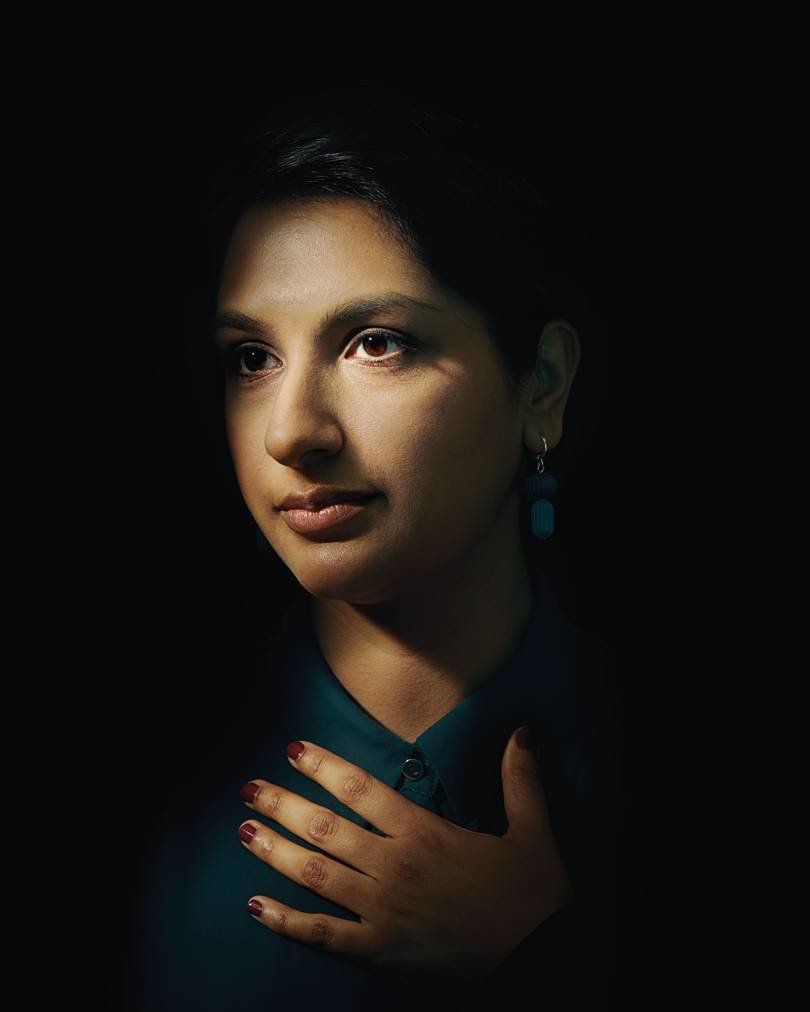
Angela Saini, author
Angela Saini, science journalist and author selects Sarah Richardson, professor of studies of women, gender and sexuality at Harvard University
Sarah Richardson is at the cutting-edge of research into sex and gender, answering the questions that most biologists fail to even ask. She shows that essentialist narratives around health disparities between men and women, which have become popular in recent years, need to be interrogated – what looks like a sex difference can often turn out to have a complex social cause rather than a simple biological one. Avoiding generalisations, Richardson does the hard work of picking apart what the data actually says.
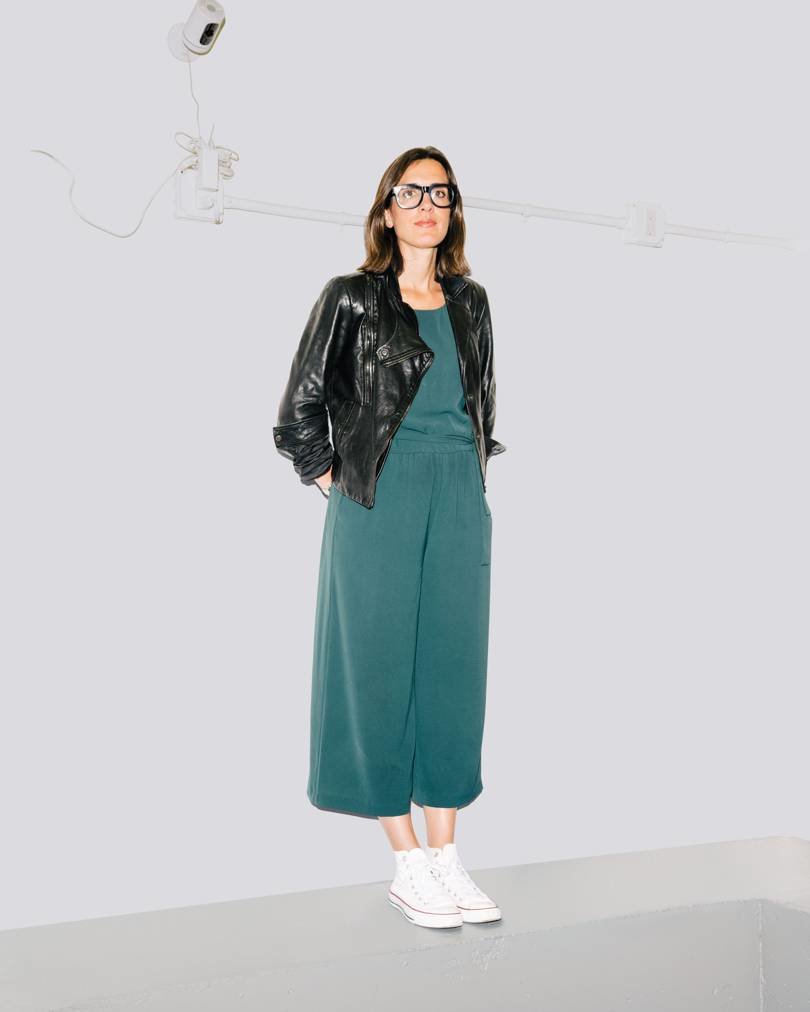
Maria Raga, CEO of Depop
Maria Raga, CEO of Depop selects Erez Galonska, co-founder and CEO of Infarm
Erez is exploring the dialogue between “think global and act local” in a phenomenal way. He’s a true believer in the power of the local community and he’s made us reconsider what opportunities, quite literally, lay in our own backyards when it comes to sustainable food production, scalable solutions and alternative modes of urban farming. Infarm’s future-forward approach to data-driven innovation will give local communities the power to be self-sufficient in ways I believe will do more than just transform the way in which we produce, shop and consume food.

Emma Paterson, agent at Alexander Aitken
Mona Chalabi, data journalist and author selects Emma Paterson, agent at Alexander Aitken Literary Agency
Emma Paterson is softly spoken. But you should lean close, because she's been whispering in the ears of writers who the publishing industry has been neglecting for centuries – women, people of color, queer folk – and she's saying two very powerful things. 1. You can write 2. You deserve to be paid properly for that work. It's working. Not only is she changing the books that end up on bookshelves across the world, but she's also changing the lives of the people who are writing those books.
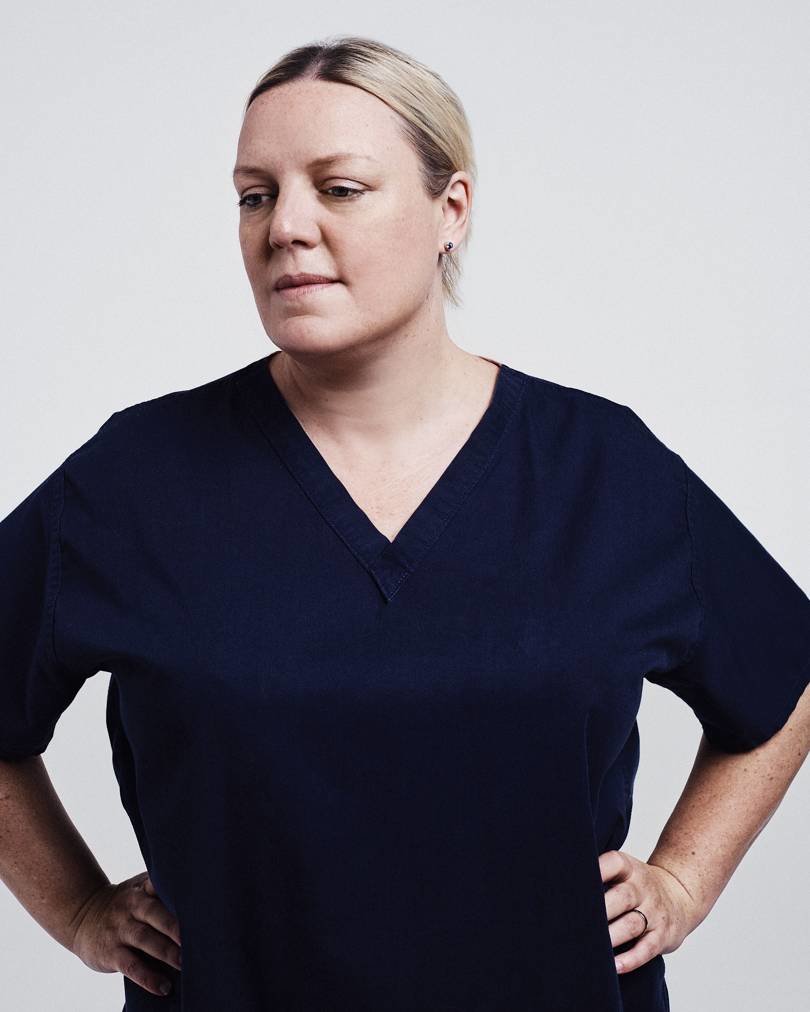
Charlotte Summers, ICU doctor & researcher, University of Cambridge
Sir Jeremy Farrar, director of the Wellcome Trust selects Dr Charlotte Summers, ICU doctor and researcher, University of Cambridge
Caring for the sickest patients as an intensive care specialist, Charlotte is a brilliant clinician and an innovative researcher. What makes her stand out this year is her extraordinary work to help the world understand more about the treatments urgently needed for Covid-19. Right from the very earliest days, when this new infection was first identified, she has been at the forefront of efforts to ease the strain on health systems and ensure patients receive the best care, saving lives. Charlotte continues to inspire me and I’m confident she will remain an outstanding leader in her field for years to come.
Emmett Shear, co-founder and CEO of Twitch selects Lenore Estrada, co-founder and CEO of Three Babes Bakeshop and executive director of SF New Deal
Owning a bakery, Lenore experienced first-hand how Covid immediately jeopardised small businesses and the livelihoods of so many, and was driven to do something about it. Lenore created SF New Deal, a nonprofit launched during Covid and designed to help small businesses stay in business, with a focus on restaurants at this present time. Lenore's programme ensures restaurants a steady income by providing meals to San Francisco's most vulnerable. So far, in just six months, over 100 restaurants are involved in the project and over 832,000 meals have been provided to low-income families, those with pre-existing health conditions, the homeless and the elderly to name but a few.
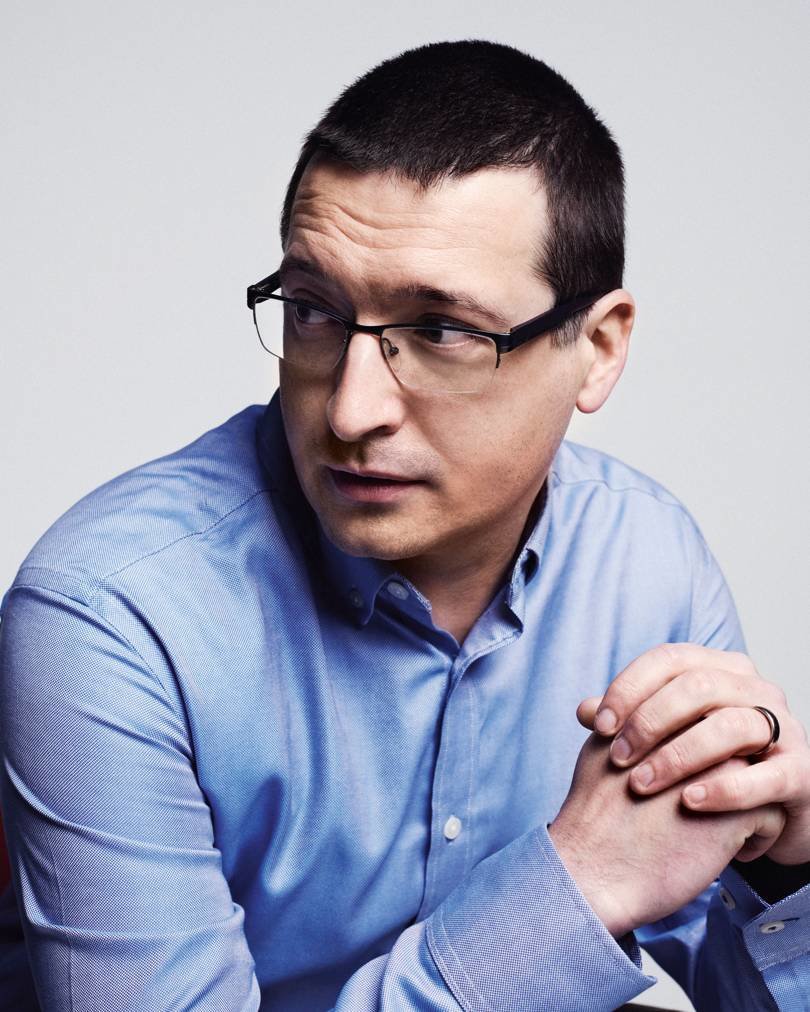
Ramsey Faragher, founder and CEO, Focal Point
Eben Upton, founder of Raspberry Pi Foundation and CEO of Raspberry Pi selects Ramsey Faragher of Focal Point Positioning
I’d like to nominate Ramsey Faragher for his work on next-generation GPS systems. GPS is a fantastically useful and but frequently infuriating technology. Ramsey Faragher's Focal Point Positioning creates AI software which combines data from smartphone sensors (accelerometer, gyroscope, barometer and compass) to filter out inaccurate GPS position fixes, building a more accurate picture of distance, speed and route. His next generation system, dubbed S-GNSS, uses super correlation technology to remove reflected and non-line-of-sight GPS signals, providing centimeter-level positioning even in dense urban environments. Ramsey has been a fixture of Cambridge academia and business for the last decade, prior to which he was slightly notorious as “The Real-life Q”. We can't wait to see what he does next.

Holli Rogers, chief brand officer at Farfetch
Holli Rogers, CEO at Browns and chief brand officer at Farfetch selects Dio Kurazawa, co-founder of The Bear Scouts
Dio Kurazawa is at the forefront of the war against waste in the fashion industry and is on a mission to minimise excess stock and implement sustainable practises within all areas of clothing production. Co-founder of The Bear Scouts, an agency designed to help brands implement sustainable practises, Dio spends an incredible amount of his time researching and developing new processes and his eye for innovation is like no other. He is extremely passionate and, having worked in the fashion industry all his life, has devoted his time to advocating and implementing a responsible production line. In addition to his work at The Bear Scouts, Dio is an advisor for the Copenhagen Fashion Summit and a lecturer at the Amsterdam Fashion Institute. While he is a staunch advocate for change, it is always approached with kindness. His overall objective in life is to be kind and tackle sustainability in the fashion industry by educating us all on how we can do better. As an industry, we have learnt so much from him already and acknowledge that there will always be more we can do to improve.
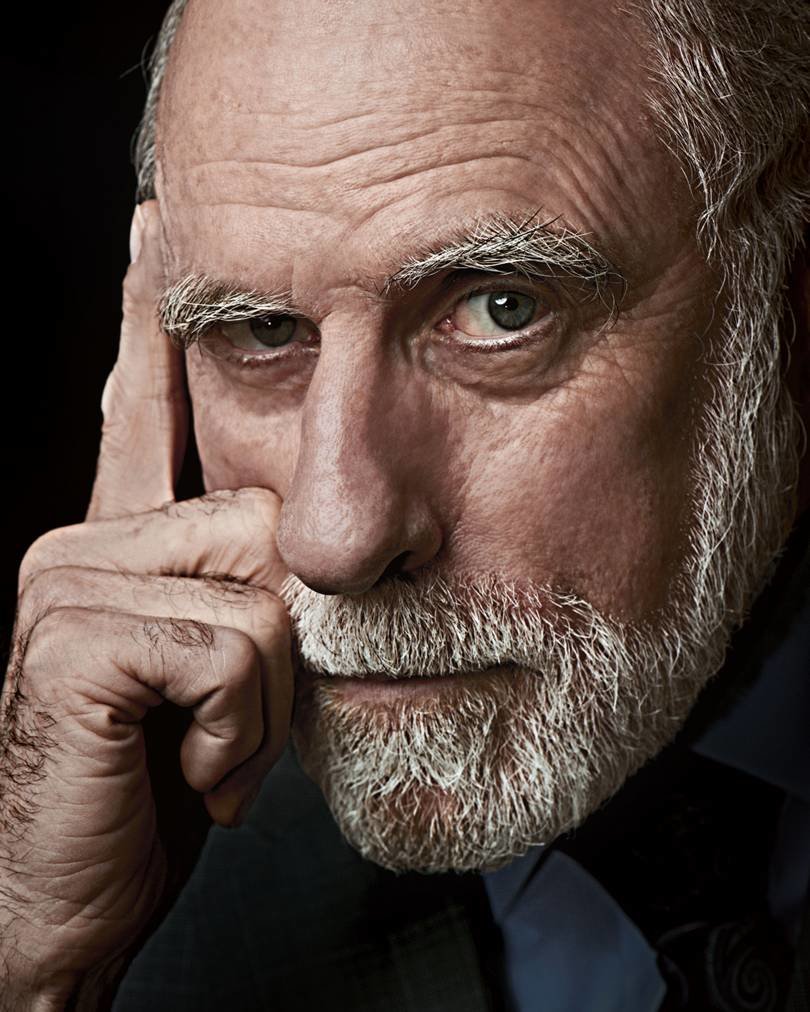
Vint Cerf, vice president at Google
Vint Cerf, vice president and chief internet evangelist at Google selects Ginny Travers, builder of the ARPANET gateway software
Virginia “Ginny” Strazisar (now Travers) was the first person to program a gateway, working with collaborators at Bolt, Beranek and Newman. Her gateway initially linked the ARPANET to the ARPA Packet Radio Network – the first two networks of what would become the internet. This was pioneering, trailblazing work and Ms. Travers deserves enormous credit for it. The gateway implementation was extended to include the ARPA Packet Satellite Network, the third net of the nascent internet. I knew her work personally as the program manager of the internet project at ARPA and the co-inventor of the TCP/IP protocols that lie at the core of the Internet. For this work, she should be revered as one of the “mothers” of the Internet along with its many and already recognized “fathers”.
Patrick Collison, co-founder of Stripe selects Saloni Dattani, PhD student in psychiatric genetics at King’s College London
Saloni has a particular talent for improving how science is communicated to the public and used in public policy through her research and writing, most recently as a frequent and essential commentator on issues surrounding Covid, from herd immunity to her explanation of minority vulnerability to the disease to her analysis of vaccine timelines. She is also an editor of Works in Progress, a very promising new online publication.
Robert Langer, entrepreneur, investor and professor at MIT selects Giovanni Traverso, assistant professor in mechanical engineering at MIT; assistant professor at Harvard Medical School
Professor Traverso is transforming how we interact with medications, for example through the development of pills that remain in the body for multiple weeks or months to address medication non-adherence, or the creation of small, swallowable devices enabling the delivery of biologics like insulin. Professor Traverso is the only person in the world with faculty appointments in mechanical engineering and medicine/gastroenterology. Over the past five years, he’s published numerous scientific papers, including more than 20 papers in Nature and Science family journals.
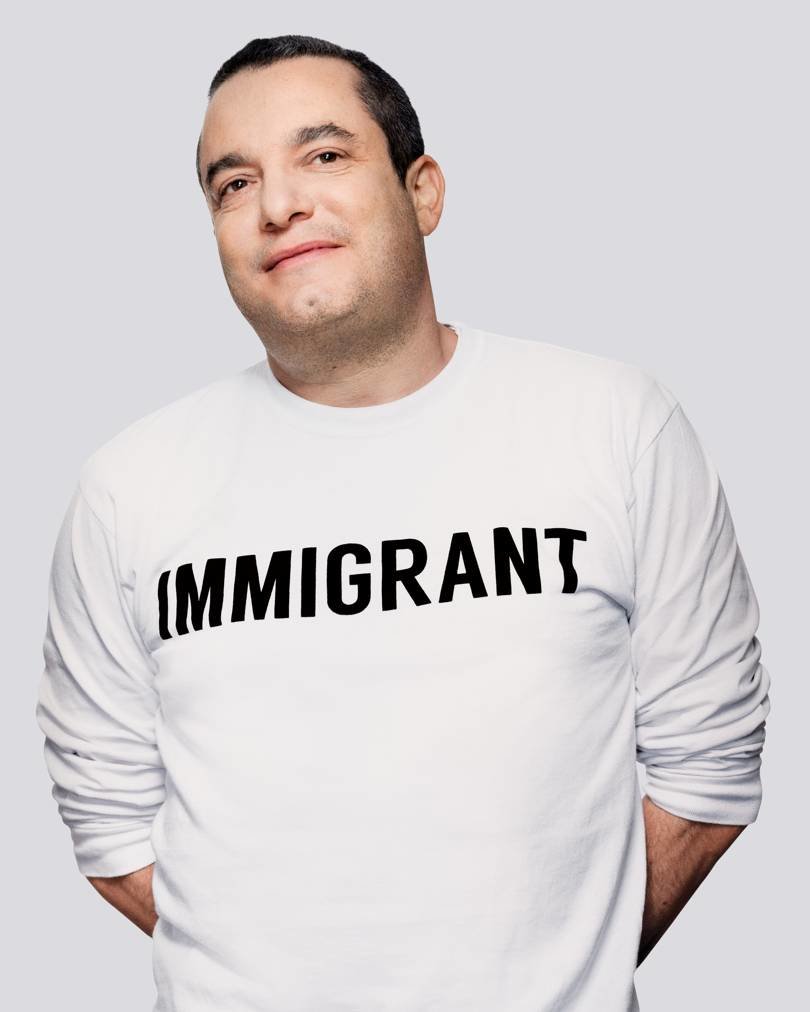
Saul Klein, co-founder & partner at LocalGlobe
Saul Klein, co-founder and partner at LocalGlobe selects Jen Allum, head of GOV.UK
Jen and her team at GOV.UK are transforming the public sector with a quiet, steely and steadfast determination that goes largely unrecognised, yet is hugely influential. Her work as the head of the digital face of the government touches every aspect of our lives – from us as individuals and families navigating employment, tax and benefits to small businesses and corporations handling day-to-day processes, all the way up to dealing with the fallout from Covid-19 and the potential impact of Brexit. Jen leads her team through example, by putting the user at the very heart of everything the service does, and needs to do. With coronavirus accelerating our unified push towards digital further, Jen and her team’s work is going to prove even more vital and of national – and international – importance over the coming months and years.
Chris Bishop, lab director of Microsoft Research Cambridge selects Flora Tasse, head of computer vision and AI research at Streem, Inc.
Flora Tasse epitomises the modern entrepreneurial research scientist because she’s so smart, so focused on the end goal, so deeply technical, and so practically down-to-earth. A childhood love of Jurassic Park sparked her ambition to reach the cutting edge of computer graphics, so she studied mathematics in Cameroon, took a masters in Cape Town, and did a PhD in Cambridge, where she linked computer graphics with the latest AI research and co-founded and sold her startup Selerio before, it seemed, one had time to take a breath. Acqui-hired by Streem, she now leads core AI research in the pursuit of remote communication through augmented reality, a technology which is rapidly beginning to permeate our lives.
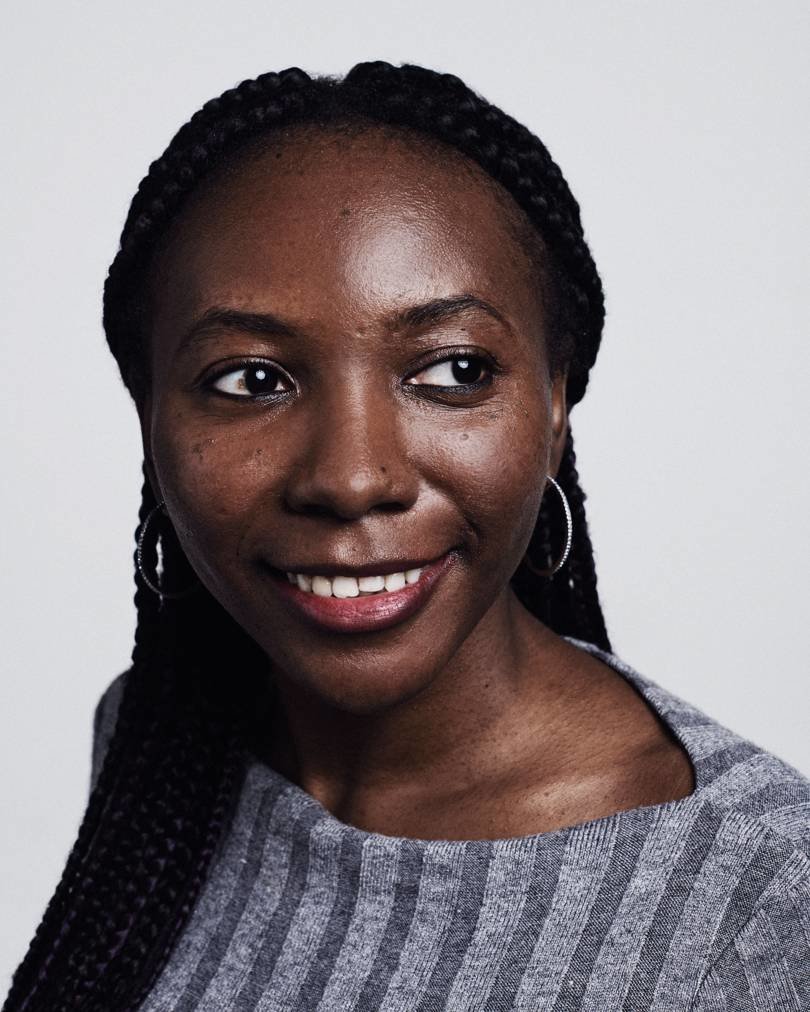
Flora Tasse, head of computer vision and AI research at Streem
Astro Teller, captain of moonshots at X selects Adrien Treuille, co-founder and CEO of Streamlit
Adrien Treuille believes in the power of other people and finds creative ways to use technology to help them unleash their ideas. Over more than a decade I’ve watched Adrien take at least four separate, exciting runs at the question that will come to define the 21st century: “How can humans and computers best work together to solve problems?” His current company Streamlit is asking a version of this. And his previous work on citizen science systems like EteRNA and Foldit were also getting at this same question. His intense creativity focused on the benefits of keeping people in the discovery and design loops makes him someone to watch.
Katie Mack, astrophysicist and science communicator selects Rose Eveleth, journalist and podcaster
Rose Eveleth is a journalist and podcaster who covers culture and the future development of society. Her podcast, Flash Forward, delves into the murky waters of different kinds of futures of human civilization, while critically examining our present and our past with the input of experts in the relevant field. Her perspective is always valuable and well thought-out, and she presents an essential commentary on where our world is heading. She also has a book coming out soon, Flash Forward: An Illustrated Guide to Possible (And Not So Possible) Tomorrows, which promises to be fascinating and instructive.
Gabriel Weinberg, founder and CEO, DuckDuckGo selects Rashida Richardson, director of policy research at AI Now Institute
Rashida Richardson is a leading voice and pioneering researcher around one of the key issues of our time that you will be hearing more and more about: algorithmic bias. Algorithms are all around us and, unchecked, they can have all kinds of negative societal consequences. Rashida is helping put these algorithms in check, with a particular focus on the social and civil rights implications of data-driven technologies (e.g. AI) and their applications (e.g. predictive policing). Beyond just doing research, however, Rashida actively helps to develop useful policy interventions and regulatory strategies. She is currently a visiting scholar at Rutgers Law School, the director of policy research at New York University’s AI Now Institute and was previously legislative counsel at the New York Civil Liberties Union.
Pete Lau, co-founder and CEO, OnePlus selects Durga Malladi, senior vice president and general manager, 4G/5G at Qualcomm Technologies
Everyone is talking about 5G nowadays, but it’s people like Durga Malladi who are on the forefront of bringing it to life – including key breakthroughs such as 5G mmWave. As senior vice president and general manager of Qualcomm’s 4G and 5G business, he has devoted his career to research and development of each generation of mobile networks since 3G. As we move deeper into the 5G era, Durga’s expertise and leadership is helping to bring unprecedented connectivity to industries, businesses and consumers around the world.
Richard Horton, editor-in-chief of The Lancet selects Helena Legido-Quigley, public health researcher and associate professor at NUS Saw Swee Hock School of Public Health
Helena is a public health scientist based in Spain. She has been at the forefront of holding the government in Madrid accountable for its failures in managing the coronavirus pandemic. She has also led a team that assembled and published the world’s best evidence about how to exit lockdowns safely and effectively, protecting lives and livelihoods. Helena has successfully navigated a perilous line between science and politics. Her work in Spain has saved countless lives.











